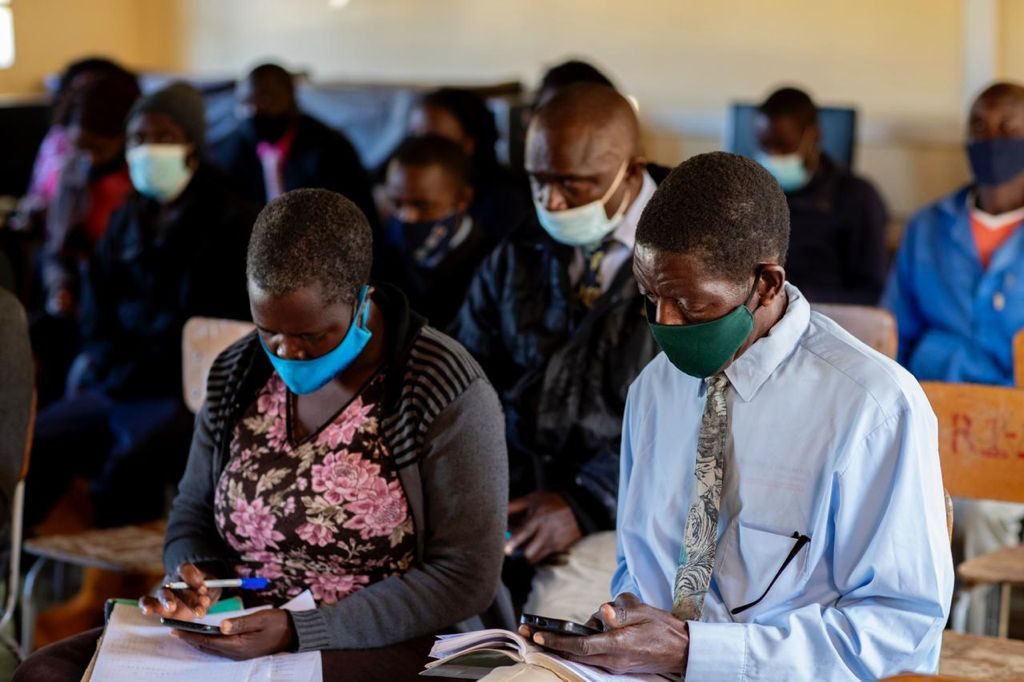Parents/Guardians are a child’s first teacher. They teach their child to walk, to talk and interact with the world.
But as the child grows and formal education begins, many parents defer the responsibility of teaching to the school. They focus on ensuring their children have access to education.
COVID-19 and lockdown conditions forced this to change. Parents were once again required to take on the role of teacher to support their child’s learning. At the same time, school teachers had to adopt new methods of educating and staying connected to their students.
This shift, although imposed, brought to light the great need for renewed collaboration between educators and parents to ensure children perform in their studies, especially as schools open and children return to formal education.
In a bid to unpack this collaboration, Higherlife Foundation and Lupane State University hosted a 2-day webinar series to train parents/guardians and community leaders on collaborative learning in the COVID-19 era.
Running under the theme: New Normal: Taking Learning to the Home and Community, the webinars provided parents/guardians an opportunity to receive training on supporting the learning of children at home and in the community from world-class educators from Lupane State University’s Department of Educational Foundations.
“The learning process has really been redefined and hence the need for us to implement hybrid approaches that combine both in school and remote learning approaches…”
– Mrs C. Juru, COO Programs Higherlife Foundation
Session Highlights
The Matabeleland North Provincial Education Director (PED), Mr Jabulani A. Mpofu, set the tone for the discussion by highlighting the need for schools, communities, and families to work together to enhance children’s learning amid the pandemic.
“We look forward to having more parents assisting their children to do homework; to achieve this, school leaders should train teachers, parents and communities.”
– Mr J.A. Mpofu, Mat North PED
Dr Christopher Ndlovu, the Chairperson of Lupane State University’s Department for Educational Foundations, emphasised the need for conducive learning environments at home for children to thrive and excel in amid the pandemic.
“Let’s create an enabling learning environment at home.”
– Dr C. Ndlovu, Lupane State University
Speaking on the need to develop learning plans, Dr Emily Mangwaya passionately requested teachers to care for their learners by assisting parents in creating learning schedules that accelerate learning.
“Under the children Act 1989, teachers have a duty of care for their learners, which is traditionally known as’ in-loco-parentis. But parents should also partake in their children’s learning; parents should be involved.”
– Dr Emily Mangwaya, Lupane State University
In their words
“The greatest support that parents /guardians can give is collaboration with the school.”
– Mrs F. Moyo, Lupane State University
“It is very important, therefore, that schools, parents and communities strive to reach out to each other…”
– Mr D. Mhlanga, Lupane State University
“Learners need a roof over their heads. A base that they call home and a roof over their heads in the school environment.”
– Dr C.S. Makoni, Lupane State University

Takeaway
Five key conditions for stimulating learning at home:
- Study space -Setting up a physical space dedicated to learning will help establish successful learning at home.
- Mini Library – In a home set up, a library can be set in a small corner where books are kept, and the children are encouraged to read.
- Displaying learning media – Children learn primarily by seeing, so to enhance this, the homes should display various learning media such as newspapers and magazines.
- Provision of electronic media – Homes should have the following electronic gadgets: television, radios, computers, laptops, iPads and smartphones.
- Quiet and stable environment – Homes should display a high degree of stability and peace.
To learn more, watch the full sessions for the webinars here and here.


